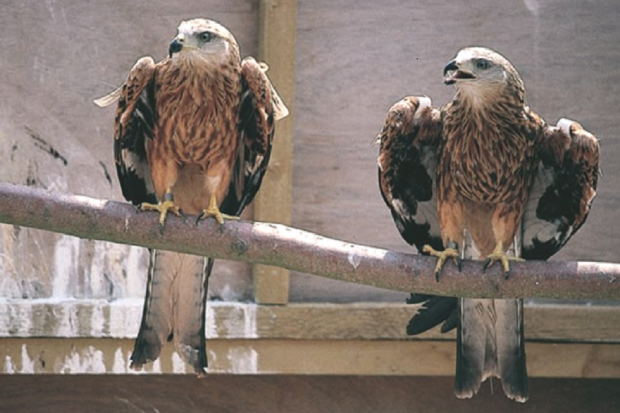
Natural England celebrates 30-year anniversary of landmark re-introduction of red kites
Written by Defra Press Office

There is widespread positive coverage today of the hugely successful re-introduction of red kites in the Chiltern Hills 30 years ago, including in the Times,Guardian, Telegraph, Daily Mail, Express, Independent, Mirror, Daily Star, and on the front page of the Yorkshire Post. The story was also covered on BBC Breakfast (8:25am).
Natural England’s Chair Tony Juniper was interviewed on Farming Today (6:50am) and BBC Radio 4’s Today Programme (8:50am), where he described the red kite as “an inspiration to show us that this relentless, rather gloomy, decline in our wildlife for a very long time is, in some cases, reversible”.
The Nature Conservancy Council (now Natural England) collaborated with the RSPB, Joint Nature Conservation Committee, Zoological Society London and British Airways to release the birds 30 years ago in an area on the Buckinghamshire and Oxfordshire border.
Red kites used to breed across much of the UK, but persecution over a 200-year period saw numbers fall as they increasingly became a target for egg collectors, reducing them to a few breeding pairs in central Wales. By the 1980s, the red kite was one of only three globally threatened species in the UK. As a result of this re-introduction, 37 pairs had bred in southern England by 1996. This project led to further successful re-introductions and their eventual re-establishment in many in many areas of southern, central and northern England.
Celebrating the anniversary, Natural England chair Tony Juniper said:
Red kites are one of our most majestic birds of prey with a beautiful plumage, and are easily recognisable thanks to their soaring flight and mewing call. Persecuted to near-extinction, they have made a triumphant comeback in England over the past three decades.
Thanks to this pioneering reintroduction programme in the Chilterns, increased legal protection and collaboration amongst partners, the red kite stands out as a true conservation success story. The flagship red kite reintroduction project paved the way for further species re-introductions, helping to reverse the historic deterioration of our natural environment and our precious species that inhabit it.
Jeff Knott, RSPB operations director for Central and Eastern England said:
The red kite introduction project has been a fantastic example of conservation in action and is the result of really effective partnership working, which we’re proud to be part of.
It’s been amazing to see a species once persecuted to near extinction in this country, brought back and welcomed by local communities, with local economies reaping the dividends of the return of this iconic species.
In the 1980s, anyone wanting to see a red kite had to make a special pilgrimage to a handful of sites. Today it is a daily sight for millions of people. In a few short decades we have taken a species from the brink of extinction, to the UK being home to almost 10% of the entire world population. It might be the biggest species success story in UK conservation history!
In July 30 years ago, we reintroduced 13 young red kites to the Chilterns, alongside partners. Once practically extinct due to persecution, the success of the project means there are now there an estimated 1800 breeding pairs in the UK!
: Simon Moorhttps://t.co/wEP1N7w4rh pic.twitter.com/Mv9uqyQIu4
— Natural England (@NaturalEngland) July 20, 2020
Red kites are now a common sight in the Chiltern Hills but can be seen across South East England, Yorkshire and the East Midlands, and in Wales and Scotland.
The government is committed through its 25 Year Environment Plan to reintroducing formerly native species where there are clear environmental benefits.
The re-introduction of red kites was a trail-blazing project, and paved the way for successful reintroductions of bird species licensed by Natural England, including white-tailed eagles to help establish a breeding population in southern England. Natural England is also involved in a number of initiatives to help ensure hen harriers recover through the Hen Harrier Recovery Plan including a southern re-introduction.
Follow Defra on Twitter, and sign up for email alerts here.
Continue reading on Defra Website...





